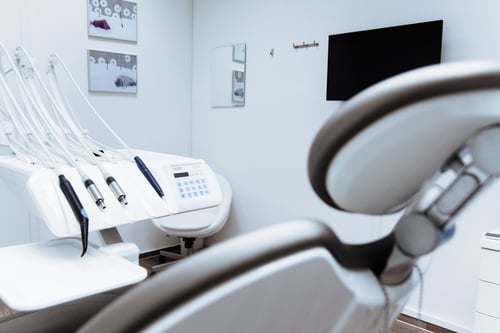
The world of dentistry is not just about cleaning teeth and filling cavities; it's a complex realm where healthcare meets entrepreneurship. For every dentist looking to start their practice, the path to success is riddled with potential legal missteps. But with the right guidance, these pitfalls can be avoided, ensuring your dental startup thrives. The intricacies of dental startup legalities might seem daunting, but knowing what to watch out for is half the battle.
Setting up a dental practice requires careful consideration of your chosen business structure, as it impacts multiple facets like liability, taxation, and daily operations. Many dentists gravitate towards sole proprietorships due to their straightforward setup and direct control over all assets. However, this structure exposes the owner to personal liability, meaning personal assets could be at risk in the event of business debts or lawsuits. While it provides simplicity, a sole proprietorship may not always be the most protective option for a dental practice.
Limited Liability Companies (LLCs) have gained popularity among dental professionals for good reasons. An LLC structure ensures that personal assets are kept separate from the business, offering protection against potential liabilities. Additionally, it offers flexibility in taxation, allowing owners to choose how they'd like to be taxed – as a sole proprietor, partnership, or corporation. This combination of protection and tax flexibility makes LLCs a compelling choice for many dental entrepreneurs.
On the other hand, when it comes to corporations, dentists often find themselves weighing between S corporations and C corporations. S corps are favored for their pass-through taxation, which means the corporation itself isn't taxed, but the income flows through to shareholders who report it on their personal tax returns. Conversely, C corps are taxed as separate entities, and then shareholders also pay taxes on dividends. While C corps can be beneficial for practices planning to reinvest profits back into the business, S corps might appeal more to those looking to avoid double taxation.
A thriving dental practice is not a one-man show. As you hire staff, whether dental hygienists or administrative personnel, you'll enter the realm of employment law. From the hiring process to terminations, there are legal protocols to follow. An ill-handled employment situation can lead to lawsuits and tarnish the reputation of your practice.
A few common missteps related to employment law include:
It's crucial to be well-versed in the rights of employees and the responsibilities of employers. Whether it's about discrimination laws, wage regulations, or workplace safety, a misstep can be costly. Training and periodic review of employment practices, ideally with legal counsel, ensure that your practice remains compliant and free from potential legal troubles.

Beyond the dental degree and the initial licensing, the world of dentistry is governed by a myriad of regulations. These are constantly evolving, and keeping abreast of changes is vital. Not only do you need to maintain your license with periodic renewals, but you must also ensure that your practice adheres to state and federal regulations.
Non-compliance, whether intentional or out of ignorance, can have dire consequences. These range from fines to revocation of your license, halting your practice in its tracks. Engaging with professional associations and seeking legal counsel can help you navigate these waters, ensuring your practice remains on the right side of the law.
The trust between a patient and dentist extends beyond the dental chair. In our digital age, safeguarding patient information is paramount. Every dental practice must be HIPAA compliant, ensuring the confidentiality and security of patient health information. Data breaches or mishandling of records can lead to hefty fines and a damaged reputation.
It's more than just having encrypted software or locked cabinets. Staff must be trained, and protocols established, to manage, store, and dispose of patient data appropriately. Regular audits and updates to your data management systems, coupled with legal oversight, can help ensure that patient trust is never breached.
The location of your dental practice can greatly influence its success. But beyond finding the perfect spot, navigating lease agreements and understanding real estate law is crucial. A poorly structured lease can trap you in unfavorable conditions, with escalating rents or hidden clauses that can hinder your practice's growth.
Being diligent in the initial stages, thoroughly reviewing every clause, and negotiating terms can save you from future troubles. Seeking legal counsel before signing a lease can protect your interests, ensuring that your practice has a secure, long-term home.
Your dental practice is more than just a clinic; it's a brand. Whether it's a unique logo, a novel method you've developed, or even the name of your clinic, these constitute intellectual property (IP). Protecting this IP is essential to prevent others from copying or profiting off your innovations.
From trademarks to patents, the realm of IP law can be intricate. By identifying what constitutes your dental practice's IP and taking steps to protect it legally, you can ensure that your brand remains exclusively yours.
Dentistry, like all medical professions, carries inherent risks. While you might be confident in your skills, unforeseen complications can arise. Without adequate malpractice and liability insurance, a single lawsuit can threaten the future of your practice.
It's not just about having insurance but understanding its nuances. Are you covered for all procedures you perform? Does your insurance offer a legal defense? Periodic reviews of your coverage, ideally with legal insight, can ensure that you're protected against all contingencies.
Running a dental practice involves multiple contracts, from equipment suppliers to partnership agreements. While it's tempting to sign on the dotted line and get started, understanding and negotiating these contracts is essential. A one-sided agreement can lead to escalating costs or being locked into unfavorable terms.
Engaging with legal professionals before finalizing contracts can help you spot and rectify potential pitfalls. This proactive approach ensures that all agreements bolster, not hinder, the growth of your practice.
Launching and running a dental startup is undoubtedly exhilarating. But without legal guidance, the dream can quickly turn into a nightmare. Dental and Medical Counsel has the expertise to guide you through every legal intricacy, ensuring your practice thrives.
Planning, designing, and building your space is critical, but so is making sure you have all of the legalities in place to open. If you are looking for additional help, contact dental attorney Ali Oromchian at Dental & Medical Counsel for a complimentary consultation to discuss your practice startup. You can also read our Comprehensive Guide to Building a Dental Practice or download our whitepaper on The Top 10 Pitfalls to Avoid when Building a Dental Practice. Let our team help you make the right choices as you move forward with the launch of your practice.
Frequently Asked
Q: What are the key legal considerations for dentists starting their own practice?
A: Dentists should consider business structure, employment law, licensing compliance, patient privacy, lease agreements, intellectual property protection, and insurance coverage.
Q: Should I choose a sole proprietorship or consider alternative business structures for my dental startup?
A: While sole proprietorships offer simplicity, alternatives like Limited Liability Companies (LLCs) can provide better liability protection and tax flexibility.
Q: What advantages does a Limited Liability Company (LLC) offer for dental entrepreneurs?
A: An LLC separates personal assets from the business, offering protection against liabilities and tax flexibility, making it a compelling choice for many dental entrepreneurs.
Q: What's the difference between S corporations and C corporations, and how do they affect dental practices?
A: S corporations offer pass-through taxation, while C corporations are taxed separately. The choice depends on your business goals and tax preferences.
Q: What legal steps should I take when hiring staff for my dental practice?
A: Ensure thorough background checks, maintain up-to-date employment contracts, provide training on harassment policies, address employee grievances, and conduct consistent performance evaluations.
Q: How can I avoid employment law missteps when dealing with my dental practice's team?
A: Being well-versed in employee rights and responsibilities and regularly reviewing employment practices with legal counsel can help maintain compliance and prevent legal issues.
Q: What are the most important dental licensing and regulatory compliance issues to be aware of?
A: Dentists must stay updated on state and federal regulations, renew licenses, and engage with professional associations and legal counsel to remain compliant.
Q: How can I ensure that my dental practice remains compliant with HIPAA and patient privacy regulations?
A: Train staff, establish data management protocols, conduct regular audits, and seek legal oversight to safeguard patient health information and maintain HIPAA compliance.
Q: What legal considerations are involved in negotiating lease agreements for my dental clinic's location?
A: Diligently review lease agreements, negotiate terms, and consider legal counsel to avoid unfavorable conditions and secure a long-term, secure location for your practice.
Q: How can I protect my dental practice's intellectual property and innovations legally?
A: Identify and legally protect your intellectual property through trademarks, patents, or other means to ensure your brand and innovations remain exclusively yours.
At Dental & Medical Counsel, we've been instrumental in realizing the practice goals of countless dentists. Whether you're looking to purchase, launch, or sell a dental practice, our expertise is your guide. Beyond the initial stages, we're committed to ensuring your dental practice remains legally compliant.
We provide comprehensive support, including employment law protections, dental contract reviews, and assistance with dental employment agreements. Additionally, we specialize in incorporating dental practices and securing trademarks. And for long-term planning, our services extend to helping dentists with succession and estate planning. Trust us to be your partner in every step of your dental practice journey.
.jpg?width=300&name=Ali%20Website%201_edited%20(1).jpg)
About Ali Oromchian, Esq.
Your Dental Lawyer
Ali Oromchian, JD, LL.M., is a leading legal authority in dental law and the founding attorney of Dental & Medical Counsel, PC, with over two decades of experience. His deep connection to dentistry comes from his wife's nearly two-decade-long career as a pediatric dentist.
This personal insight fuels his dedication to empowering dentists to navigate their legal challenges and achieve their practice goals. In doing so, Ali has helped thousands of doctors open their practices while maintaining legal compliance.
Ali is frequently quoted and contributes articles to dental publications, including the California Dental Society, Progressive Dentist, Progressive Orthodontists, Dentistry Today, Dentaltown, and The New Dentist magazines, further showcasing his commitment to the dental community.

Stay updated with industry news!
1904 Olympic Blvd, Suite 240
Walnut Creek, CA 94596
Phone: 925-999-8200
Fax: 925-884-1725
frontdesk@dmcounsel.com
| Monday | 8:00AM - 6:00PM |
| Tuesday | 8:00AM - 6:00PM |
| Wednesday | 8:00AM - 6:00PM |
| Thursday | 8:00AM - 6:00PM |
| Friday | 8:00AM - 6:00PM |
| Saturday | Closed |
| Sunday | Closed |